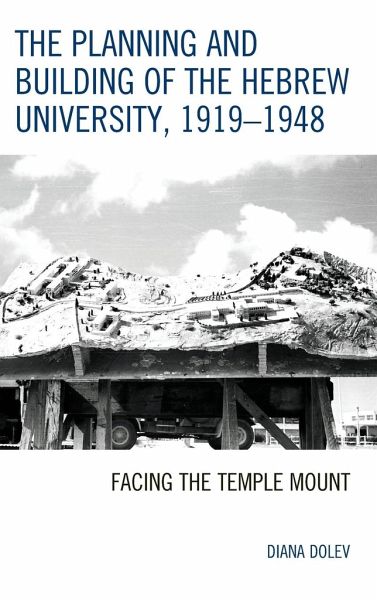
Planning and Building of the Hebrew University, 1919-1948
Facing the Temple Mount
Versandkostenfrei!
Versandfertig in 1-2 Wochen
100,99 €
inkl. MwSt.
Weitere Ausgaben:

PAYBACK Punkte
50 °P sammeln!
This book analyzes the construction of the first Hebrew University, which the author identifies as central to Zionist goals, and details the challenged faced by the well-known architects and planners related to power struggles, donors’ wishes, and architectural concerns.














